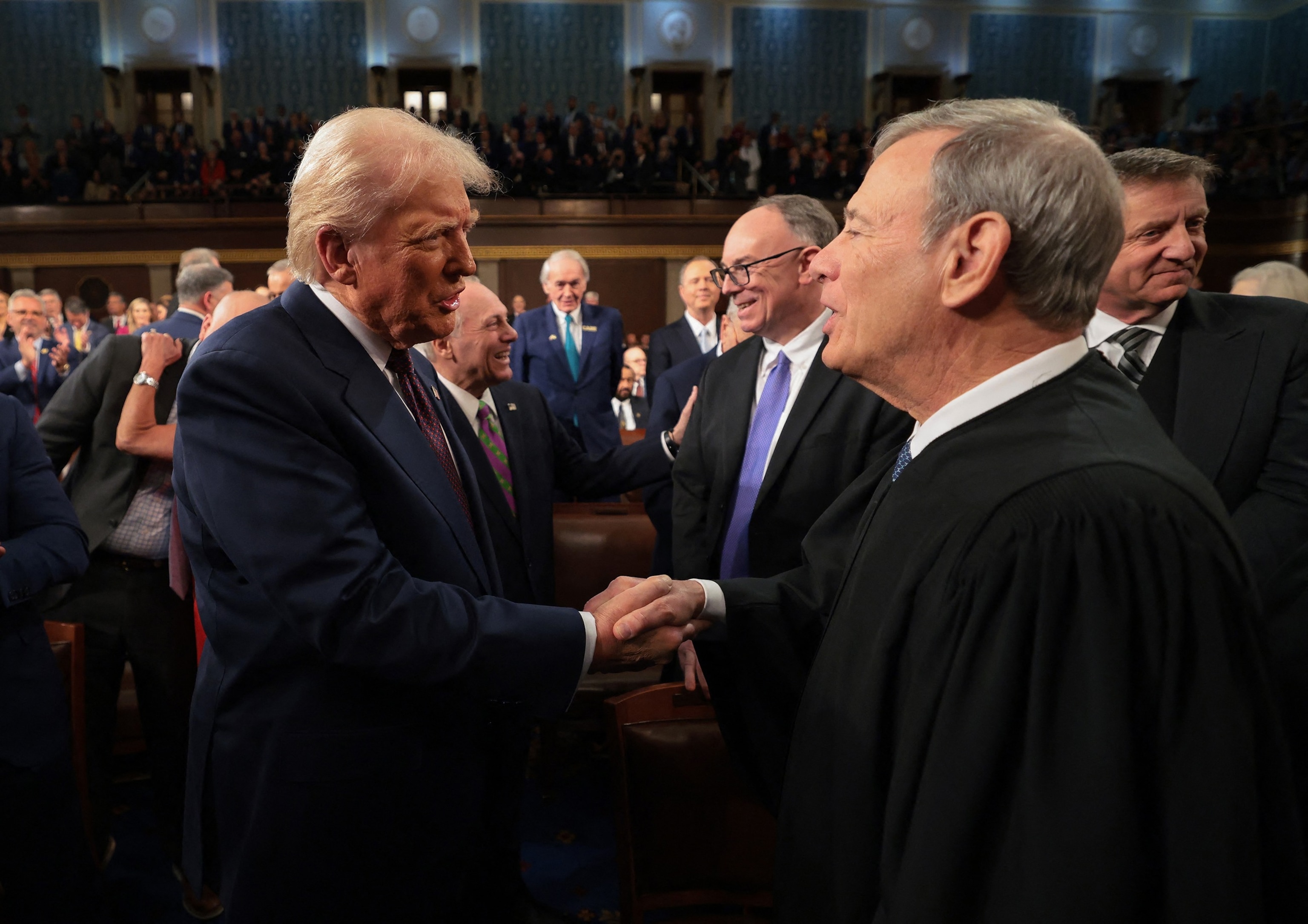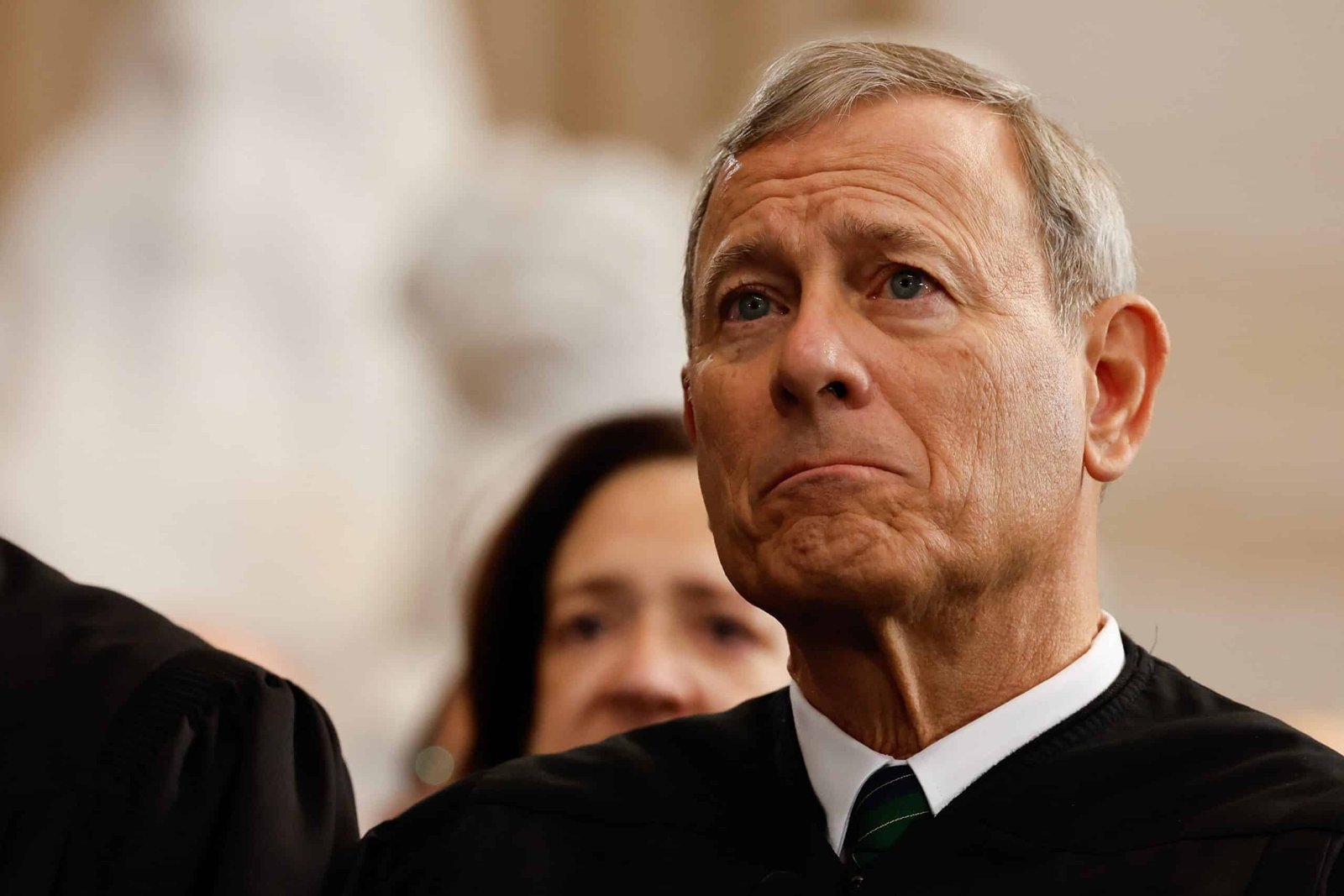The president of the Supreme Court, John Roberts, does not use social networks, much less follow President Donald Trump on his online Truth Social Platform.
But when Trump published an attack against a federal judge just after 9 am on Tuesday, asking for his political trial after an adverse ruling, Roberts took the extraordinary step of issuing a statement with equally extraordinary speed.
“For more than two centuries, it has been established that the accusation is not an appropriate response to the disagreement about a judicial decision,” Roberts said in a statement published to ABC News just before noon. “The normal appeal review process exists for that purpose.”
Although Roberts did not mention Trump or the specific judge by name, the reprimand was directed directly to the president, his main advisor Elon Musk and the Republican allies of the Congress who have requested the elimination of the judges of the District Court that block, temporarily or of another type, any administrative action.

The president of the United States Supreme Court, John Roberts, attends the opening ceremonies in the Rotunda of the United States Capitol on January 20, 2025 in Washington, DC.
Somodevilla/Getty chip
Trump had pointed to the judge of the United States District Court, Jeb Boasberg, who had ordered the administration for temporarily stopped the deportation flights of alleged members of Venezuelan gangs. Boasberg was looking for information about the detainees, who were arrested and eliminated without any due process under the law of alien enemies of 1798.
The Government continued flights anyway and currently appeals the order of Boasberg. However, Trump said the judge should be eliminated. “This radical left Lunatic of a judge, a uprising and agitator who was sadly appointed by Barack Hussein Obama, was not elected president,” Trump wrote on social networks.
The public exchange between the bosses of two branches of the US government pushed Roberts’s seemingly growing concern for eroding respect for the rule of law.
The president of the Supreme Court, who runs the Federal Judiciary of the Nation, rarely speaks in public and almost never comments on the partisan debate, much less responds to a politician in real time for a dispute that will probably be asked to review.
The Court as an institution rewards its independence and its members, designated for life, have historically maintained strict silence on active legal disputes that they could resolve.
That Roberts chose to answer at this time is an indication of the seriousness of his concern for the current relationship between this White House and the courts.

President Donald Trump greets the president of the United States justice, John Roberts, when he arrives to speak during a speech to a joint session of Congress at the United States Capitol in Washington, DC, on March 4, 2025.
WIN MCNAMEE/POOL/AFP through Getty Images
A few days before Trump swore for the second time, Roberts warned that precisely the types of attacks against judges that now proliferate.
“In recent years, elected officials of the entire political spectrum have raised the spectrum of contempt open by the decisions of federal courts,” Roberts wrote in his annual report on the Judiciary, a few days before Trump swore for the second time. “These dangerous suggestions, by sporadic, must be rejected.”
“Each administration suffers defeats in the judicial system, sometimes in cases with important ramifications for the Executive or Legislative Power or other consistent issues,” Roberts wrote. “However, during the last decades, the decisions of the courts, popular or not, have been followed.”
The president’s allies point out that, despite his entire bravucón, he never openly mocked a ruling of the Federal Court during his first term in office.
“Always match the courts, always steel with them. And we’ll appeal,” Trump said last month from the Oval office. But he has also shown opening to a different approach: “He who saves his country does not violate any law,” he published later on social networks.

President Donald Trump greets when he returns to the White House after attending a meeting of the Board at the Kennedy Center, in Washington, on March 17, 2025.
Carlos Barria/Reuters
Legal scholars say that the recent rhetoric of the Trump administration has led the nation to the edge of a constitutional crisis, a time when the democratic government system, with three independent branches that provide control over others, does not work correctly.
“There is a centenary understanding that if the power of political trial is used to punish the judges for their decisions, it undermines the vital independence of the judicial branch,” Douglas Keith wrote, a constitutional scholar and lawyer of the Brennan Justice Center, a non -partisan legal defense group.
In 2018, Roberts and Trump faced public in a similar scenario: a district court judge that blocks a Trump immigration policy.
“We don’t have Obama judges or Trump judges, Bush judges or Clinton’s judges,” Roberts wrote in a thank you statement statement. “What we have is an extraordinary group of dedicated judges who make their best level to make the same right to those who appear before them.”
Trump at that time returned: “Sorry, the president of Justice John Roberts, but in fact you have ‘Obama Judges’, and have a very different point of view than the people accused of the security of our country.”
Trump has challenged the courts in a way that no other modern president has attacked judges, often by name.
It is still a surprising phenomenon of this presidency.




